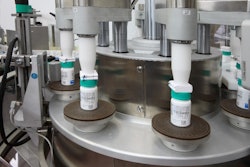
Healthcare Packaging (HCP): Describe USP and its involvements?
Desmond Hunt: The United States Pharmacopeial Convention (USP) is a nonprofit scientific organization that develops standards for the identity, strength, quality, and purity of drugs and their ingredients, which are published in the United States Pharmacopeia and the National Formulary (USP–NF). USP–NF includes monographs, general chapters, and General Notices. A monograph is developed for a single article (e.g., drug substance, drug product, excipient), while a general chapter can apply across multiple articles. Above 1000 general chapters are intended to be informational, and contain no mandatory requirements unless specifically referenced in a monograph, General Notices, or a general chapter numbered below 1000. General chapters designated as below 1000 contain tests that are generally intended to be components of monographs for items recognized in USP or NF. Enforcement of applicable USP-NF standards is the responsibility of FDA and other government authorities in the U.S. and elsewhere; USP has no role in enforcement.
USP is currently involved in several projects related to packaging and labeling, a majority of which involves work on packaging standards. General Chapter <660> Containers?Glass recently became official and focuses on glass containers for pharmaceutical use. Another General Chapter <660> Containers?Plastics is undergoing a major revision, which will result in something quite different from the current general chapter we have today. USP is in the process of developing a general chapter for metal containers testing. Today, there are no methods or specifications for metal containers for pharmaceutical use in any pharmacopoeia. In addition, we’re revising General Chapter <671> Containers?Performance Testing, which will focus on container permeation testing. In 2013, we’ll be hosting a workshop based on that chapter, so we encourage stakeholders to attend that event given that input to our revision of the chapter will be critical. A workshop agenda and registration information are available at http://uspgo.to/pharma-packaging-workshop.
HCP: What benefits does USP provide for professionals involved in filling, labeling, packaging, etc., of medical devices, pharmaceuticals, biologics, and combination products?
Hunt: USP’s standards-development activities related to packaging involve a wide a range of pharmaceutical products, including traditional small-molecule pharmaceuticals, biologics, and combination products. In essence, we’re trying to provide professionals with tools that may be helpful in determining if a packaging system is suitable for its intended use. Today, we have a variety of pharmaceutical and related products on the market with differing requirements when it comes to packaging. These include parenterals, inhalation, and ophthalmic products—which are considered high-risk products. We hope that our standards can be of use to packaging professionals who need to be able to maintain the quality of these products. For example, we’re developing new General Chapter <1663> Good Manufacturing and Stability Practices?Determination of Extractables Associated with Pharmaceutical Packaging Systems, which will discuss the basic principles for designing and conducting an extraction study, and <1664> Good Manufacturing and Stability Practices?Assessment of Drug Product Leachable Thresholds, which will focus on leachables assessment.





















